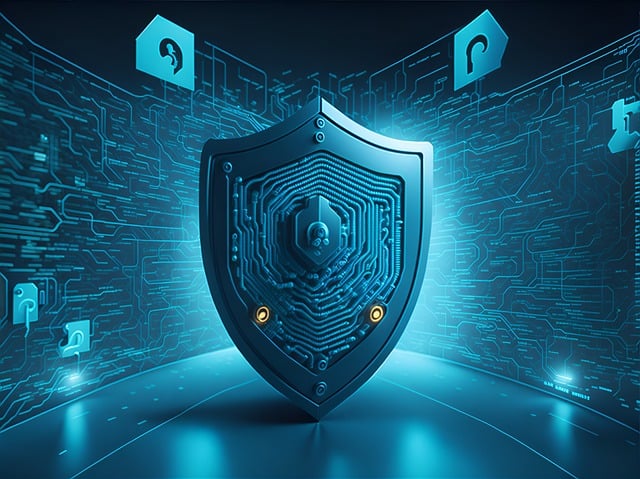Introduction to Cybersecurity
 Gift Ayodele
Gift Ayodele
What is Cybersecurity?
Cybersecurity is like a digital shield. It protects your computers, networks, and personal data from attacks by cybercriminals. In our technology-driven lives, understanding cybersecurity is essential. It ensures your information—like bank details, personal messages, and photos—remains safe from unauthorized access and theft.
Why Cybersecurity Matters
Protecting Personal Information: Every time you go online, you share data, including passwords and credit card numbers. Cybersecurity helps keep this information private and secure from those who may misuse it.
Preventing Financial Loss: Cyberattacks can lead to severe financial repercussions, including theft and fraud. Effective cybersecurity measures help reduce these risks.
Maintaining Trust: Whether you’re a business or an individual, trust is vital. A data breach can damage your reputation and lead to a loss of customers or relationships.
Compliance with Regulations: Many sectors must follow specific cybersecurity laws. Not adhering to these can lead to hefty fines.
Common Cyber Threats
Malware: This malicious software can damage or disrupt your computer systems. Types include viruses, worms, and ransomware.
Phishing: Cybercriminals often use deceptive emails or messages to trick you into revealing sensitive information.
Denial of Service (DoS): In a DoS attack, a system is overwhelmed with traffic, making it inaccessible to legitimate users.
Man-in-the-Middle (MitM): Here, attackers intercept and manipulate communications between two parties, stealing sensitive information.
Practical Cybersecurity Applications for Everyday Life
Use Strong, Unique Passwords
What to Do: Create passwords with a mix of uppercase letters, lowercase letters, numbers, and symbols. Avoid easily guessable information.
Why It Helps: Strong passwords make it harder for hackers to access your accounts. Consider a password manager to help manage them.
Enable Two-Factor Authentication (2FA)
What to Do: Activate 2FA on accounts that offer it. This often involves receiving a verification code on your phone.
Why It Helps: Even if someone gets your password, they can’t access your account without the second verification step.
Keep Software Updated
What to Do: Regularly update your operating system, apps, and antivirus software. Turn on automatic updates if possible.
Why It Helps: Updates often fix security vulnerabilities, protecting you from potential attacks.
Be Cautious with Emails and Links
What to Do: Don’t click on links or download attachments from unknown sources. Verify the sender’s identity.
Why It Helps: Many attacks start with phishing emails. Being cautious can prevent serious breaches.
Use Secure Wi-Fi Networks
What to Do: Secure your home Wi-Fi with a strong password. Avoid public Wi-Fi for sensitive transactions.
Why It Helps: Secure Wi-Fi protects your devices from unauthorized access. Public Wi-Fi can expose your data to cyber threats.
Monitor Financial Statements Regularly
What to Do: Check your bank and credit card statements frequently for unauthorized transactions.
Why It Helps: Early detection of fraud allows for quick action, minimizing losses.
Back Up Your Data
What to Do: Regularly back up important files to an external drive or cloud service.
Why It Helps: In case of data loss from attacks or failures, backups ensure you retain crucial information.
Educate Yourself and Others
What to Do: Stay informed about the latest cybersecurity threats and share this knowledge.
Why It Helps: Awareness is key to prevention. The more you know, the safer you are.
Conclusion
Cybersecurity isn’t just for tech experts; it’s essential for everyone in today’s digital age. By implementing these practical tips, you can protect your personal information and maintain a safer online environment. Remember, staying vigilant and proactive is key to navigating the digital landscape securely.
Subscribe to my newsletter
Read articles from Gift Ayodele directly inside your inbox. Subscribe to the newsletter, and don't miss out.
Written by
